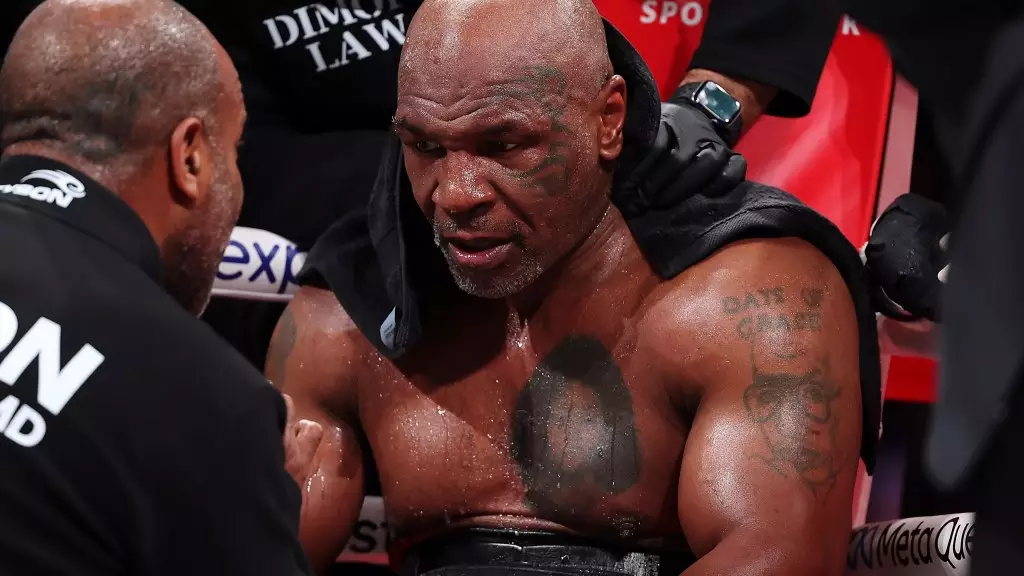Mike Tyson, the former heavyweight boxing champion known for his controversial life both in and out of the ring, has found himself embroiled in a legal dispute that is attracting attention across the globe. A Cyprus-based company, Medier, has filed a lawsuit against Tyson in London, seeking nearly €1.5 million (approximately $1.59 million) due to his alleged breach of a promotional contract. The crux of the matter lies in Tyson’s decision to engage in a much-publicized boxing match against social media influencer Jake Paul, which reportedly led to his termination of a prior agreement with Medier.
According to the lawsuit, Tyson’s contract with Medier was aimed at promoting the online casino platform Rabona. This agreement, established in January, appeared straightforward until the announcement of Tyson’s fight against Paul in March. On the same day that Tyson’s new fight was publicized, Medier alleges that the agreement was abruptly terminated, leaving them to claim damages for a business deal that they argue was never breached on their part. The company contends that Tyson’s actions reflect a calculated decision to pursue a more lucrative opportunity, causing them substantial financial losses that they are now seeking to recover through the court system.
This situation raises larger questions about the obligations of public figures towards their contractual commitments. Tyson’s actions can be interpreted as a reflection of the changing landscape in sports and entertainment, where the lines between traditional sporting events and promotional contracts can easily blur. The rise of social media influencers transitioning to legitimate sports competitions has altered how established athletes like Tyson balance their careers and commitments. Tyson, with his history of navigating complex personal and professional challenges, now stands at a crossroads that highlights the evolving nature of contracts and sponsorships in the modern era.
The public reaction to the lawsuit may vary widely, especially juxtaposed against Tyson’s past. His reputation for controversial behavior serves as both a platform from which he can launch new ventures and a point of contention that often attracts negative scrutiny. The involvement of a prominent platform like Netflix as a sponsor for the fight adds another layer of complexity to the situation—further complicating the narrative surrounding Tyson’s questionable contractual integrity.
As this case unfolds, the implications for Tyson’s legacy and future arrangements in the world of sports endorsements and entertainment can’t be ignored. Should the court rule in favor of Medier, it may set a precedent that affects not just Tyson but others in his shoes. Furthermore, the outcome of this legal battle could serve as a cautionary tale for athletes and influencers alike—emphasizing the importance of contract adherence in the face of lucrative opportunities that may arise unexpectedly. With much at stake, one can only wonder how Tyson will navigate this legal challenge while maintaining his standing in an industry known for its rapid changes and unpredictable nature.

